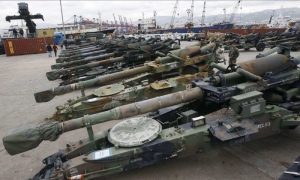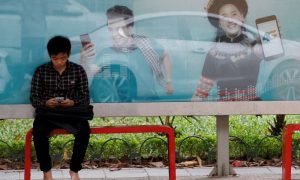ADB Work in Pakistan – Recent Report
ADB’s Funding of Projects in Pakistan
Financial partnerships enable ADB’s financial partner governments or their agencies, multilateral financial institutions, and private organizations to participate in the financing of ADB projects.
Other funds provided can be in the form of loans and grants, technical assistance and non-state co-financing.
Cumulative co-financing commitments in Pakistan:
-
Sovereign co-financing: USD 5.13 billion for 54 investment projects and since then US$107.87 million for 65 technical assistance projects 1973
-
Non-state co-financing: USD 13.38 billion for 24 investments projects since 1993
In 2022, Pakistan received $500 million in loan co-financing Asian Investment Bank for building infrastructure.
Resilience with an active countercyclical spending program.
An overview of the running projects including co-financing from 01 January 2018
until 31 December 2022 is given at www.adb.org/countries/
Pakistan/co-financing.
ADB Future Plans of Funding
Guided by the Country Partnership Strategy, 2021-2025, ADB will continue to support the Government of Pakistan in its post-flood reconstruction and recovery efforts.
Priorities include improving economic management, building resilience, strengthening competitiveness and privacy industry development. ADB help in home resources
mobilization, financial inclusion and energy sector reforms to support the government in its macroeconomic management.
To build resilience, the Bank will continue to support Pakistan in climate adaptation and transition to clean energy.
ADB is working to help improve access to finance and support a public-private partnership to get the country’s economy back on track towards an inclusive, broad-based and sustainable growth trajectory.
Asian Development Bank – What It Does
ADB is committed to achieving a prosperous, inclusive, resilient and sustainable Asia and the Pacific, while trying to eradicate extreme poverty.
It has 68 members, including 49 from Asia and the Pacific and 19 from outside. ADB is headquartered in Manila, Philippines and has 43 offices worldwide, with 3,775 employees from 66 members as of December 31, 2022.
ADB enhances up to maximum the effects of development of its assistance to its members by
providing tailored funding and knowledge solutions through policy dialogue and consulting services among others. It mobilizes financial resources through co-financing from governments, business-oriented and export credit sources.
ADB met strong demand for its aid in 2022. It released more resources for its members through the private sector and partnerships. ADB provided financing climate disaster reduction and adaptation steps and projects, enhancing education quality and access, affordable health care system and more sustainable and strong climate-resilient food supply systems.
By 2022, 97% of ADB operations contributed to gender equality. ADB cultivated greater regional cooperation on issues such as health threats and tax cooperation.
ADB has also countered the demand for adapted and fitted knowledge solutions from its members nations.
ADB operations. By the end of 2022, ADB has given $20.5 billion in loans, grants, equity investments, guarantees, private sector programs and technical assistance public and private sectors of its borrowing members. ADB strengthened it total support with co-financing USD 11.4 billion.
By the time of December 31, 2022, ADB’s total commitments reaches in 45 countries Worth $358.4 billion covering 4,189 loans, $12.6 billion in 566 grants and $5.5 billion in technical assistance grants, including regional technical assistance grants.
In addition to loans, grants and technical assistance, ADB uses guarantees, equity capital
private sector investments and programs to assist its developing member countries.
Total liabilities in non-state loans, capital investments and guarantees of ADB’s own resources in 2022 was $1.1 billion for 37 transactions in economic and social infrastructure, financial sector and agribusiness.
In 2022, ADB mobilized $1.7 billion for long-term project co-financing and $5.3 billion in co-financing through the trade and supply chain financing program and a microfinance program. Total outstanding and unpaid balances
liabilities of non-sovereign transactions financed from ADB’s own resources as of December 31, 2022, it was $12.8 billion.
Click here, if U want to Review the Entire Report.


























